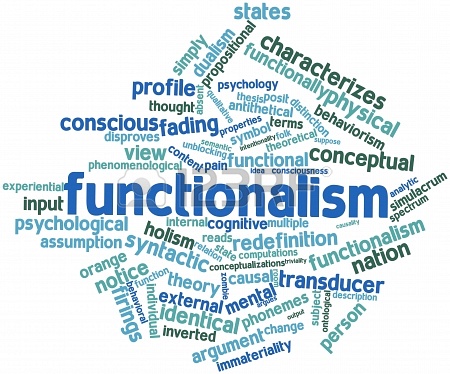Functionalism
has held for several years a dominant position among the contemporary
sociological theories. In functionalism society it is conceived as a set of
interconnected parts between them. None of them, therefore, can be understood
isolated from the other, but only in its context.
The
relationships between the parts of the company are functional, and each element
performs a particular task which if combined with all the others things, helps
to create and keep working that part of the world that we call society.
There
exists, therefore, for functionalism a state of equilibrium in society, that is
happen when each part performs its job properly. For this reason we can say
that the functionalism is based on the model of the organic system that we find
in the life sciences.
Functionalism
is a line of research in psychology, which begin in the United States in the
late nineteenth century by William James and John Dewey, who plays psychic
phenomena not as separate elements from each other (as he tried to do the
contemporary European structuralism Edward Titchener) but as functions by which
the body adapts to the social and physical.
The
manifesto of functionalism is considered the classic article "The Province
of Functional Psychology", James Rowland Angell (1907). In the article,
Angell argues that mental functions are not "abstract entities", but
are the result of evolutionary processes functional in humans mediate the
relationship between the environment and needs of the organism.
Although
functionalism, as school specific psychological, has seen a decline since the
late '20s (in conjunction with the growth of the contemporary academic
psychology, behavior modification in the US), some of its basic assumptions are
filtered within the principles implicit in contemporary psychological research,
both in specific sectors such as Evolutionary Psychology that, in general, most
of the Cognitive Science.
References:
https://en.wikipedia.org/wiki/Structural_functionalism
http://study.com/academy/lesson/structural-functional-theory-in-sociology-definition-examples-quiz.html



Nessun commento:
Posta un commento